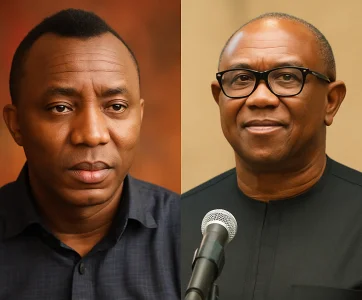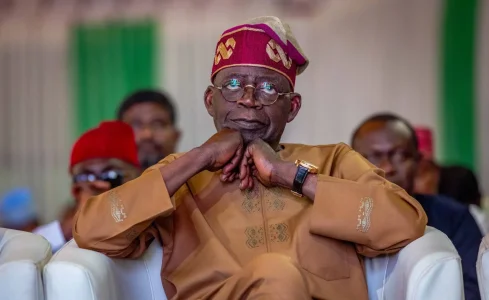
Peter Obi's comments on the 2012 Occupy Nigeria protests have reignited debate over who benefits from public dissent. While Omoyele Sowore calls the remarks dismissive, others hear a deeper critique: Where are the voices that once led, now silent in power?
KEY POINTS
- Obi's Observation Sparks Backlash: He questioned why today's fuel price hikes haven't drawn the same outrage seen in 2012.
- Sowore Defends Protest Roots: The activist insists 2012 protests were valid, not politically hijacked, and rooted in real economic pain.
- A Misstep—or Misunderstood Point? Some argue Obi's tone undermined a painful chapter, even if the question of selective outrage still stands.
Can today's political class genuinely connect with protest legacies — or have those moments become another rung in Nigeria's ladder of power? Who still speaks for the people when the chants fade?


![[VIDEO] 2027 Election: Amaechi’s Mosque Visit Draws Attention on Social Media](/data/attachments/226/226105-4c3264f63479690a2843f3daba4d18e0.jpg?hash=wnWT-Lfyli)

